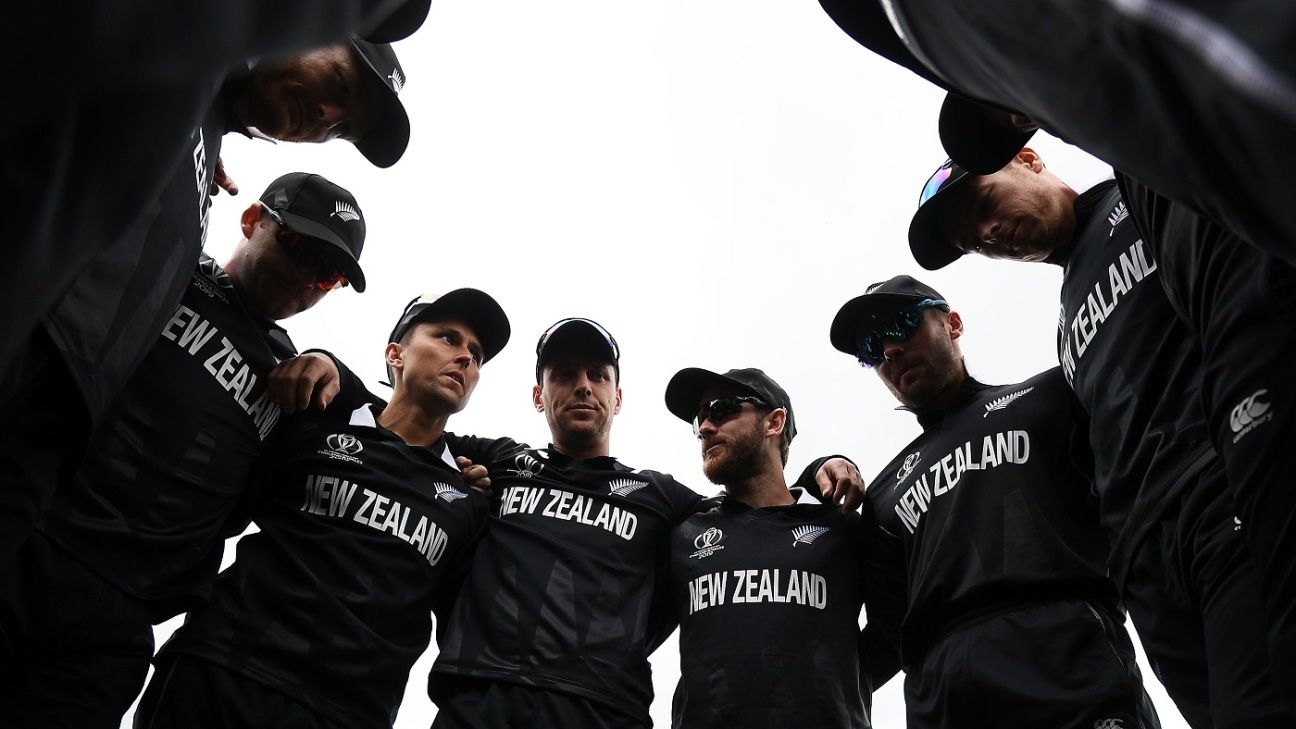
The nail-biting win over West Indies at Old Trafford was the kind of result that gives teams a lot of self-belief, but it has come at a significant cost for New Zealand. Their main batsman, the only one to have scored more than 200 runs at this World Cup, is now on notice because they failed to maintain a good over rate in those tense final moments. Captain Kane Williamson is now one over-rate offence from being suspended for a match.
Williamson has been fined 20% of his match fee for New Zealand's slow over rate against West Indies, and the other players 10% of theirs. Another over-rate breach during the tournament will be deemed a second offence, which will bring with it a suspension for Williamson.
It will be particularly disappointing for New Zealand that it has come to this: the last time New Zealand were tardy with their overs was way back in the Champions Trophy in 2017. Behind India - who are immaculate with their over rates - New Zealand are the most disciplined side in the world when it comes to finishing their overs in the allotted time. And in the first match in which they batted first at this World Cup and were put under pressure while defending their total, New Zealand were found to be slow. In the matches between their two offences, the closest match they had when batting first was a 15-run win. It will be a small concern that they were slow when put under that pressure.
"We will be talking about that, it's certainly something we don't want," Gary Stead, New Zealand's coach, said. "Our record's been really good, and I think the moment the other night was something that probably got to everyone. It was so noisy, and the atmosphere was so good that it was really hard and difficult to hear. When you get in those pressure moments, sometimes you need to take a bit of extra time to be clear on it, but the West Indies were slow as well."
On the clock, even West Indies were at least 26 minutes late in finishing their overs, but the ICC match referee makes allowances for injury breaks and other timeouts before handing out these fines. West Indies were deemed to be just in line with the over-rate requirement, and New Zealand to have exceeded it. And they finished the innings off in 49 overs. Had the match gone the distance there might have been a bigger penalty coming their way.
However, New Zealand sound confident they don't need to do anything dramatic. They won't suddenly start playing two spinners just to maintain over rates. Stead knows the last time it happened was when he wasn't even the coach. He knows they just need to reinforce the little disciplines to make sure they are on the right side of that ledger. It is just more significant because it is Williamson, who has been streets ahead of the other New Zealand batsmen in this tournament, with 373 runs at an average of 186.50 and two Man-of-the-Match awards to his name, for two masterful centuries in difficult conditions.
"I understand the ICC have got things they need to clamp down on as well, that's part and parcel of it, but we don't want to lose Kane so that's something we'll be chatting about," Stead said.
The ICC has come down hard on over-rate offences in limited-overs tournaments. In this World Cup, a captain cannot be absolved of over-rate responsibilities even if the team decides to switch captains, like Kumar Sangakkara and Mahela Jayawardene did at the World T20 in 2012.
The relevant ICC playing condition says: "If the Team Captain plays in a match without being the nominated Captain for that match, he will be deemed to be the Captain should any penalties be applied for over rate breaches under the ICC Code of Conduct unless he is off the field for wholly acceptable reasons for the entirety of his team's fielding innings."
However, should New Zealand feel that their last league match will have no bearing on their final standing in the league table, they can rest Williamson if they want to be extra safe. But, as Stead said, it hasn't caused any panic in the ranks because they know they have managed it for two years. They just need to be mindful of it when the pressure is on.















 Phone: (800) 737. 6040
Phone: (800) 737. 6040 Fax: (800) 825 5558
Fax: (800) 825 5558 Website:
Website:  Email:
Email: 






